Tuesday’s announcement that Borussia Dortmund‘s Erling Haaland has agreed a €60 million move to Manchester City this summer set pulses racing across the world. But it’s no coincidence that the transfer of a No. 9 striker attracted such wild speculation across both mainstream and social media. A club’s centre-forward often makes the difference in a game, certainly when it comes to finishing an attacking phase, but also in giving the defence a breather by winning and defending free kicks (among other things).
The No. 9 position has long since moved on from being just a shirt number and is now a general concept into which a broad range of players are thrown. The basic definition is that of a “central attacker with a physical presence,” who carries some expertise when it comes to scoring, protecting and laying off the ball, while also having some kind of aerial strength. While a modern trend has seen high-profile managers like Pep Guardiola favour a “false No. 9” — a movement-based, creative player like Lionel Messi, who can open space for the wide attackers in central areas and act as a focal point to knit together attacking moves — rather than a “target man” for teammates to aim for, it does seem that most top coaches would rather have a “true No. 9” than play without one.
The problem is that the array of skills needed for this position aren’t usually fully developed until well into a player’s 20s. At 21, Haaland is shaping up to be the exception — though some might argue he still needs to work on his hold-up game — but when he’s scoring almost a goal per game on average (85 goals in 88 games at Dortmund), it’s a trade-off you can accept.
Real Madrid‘s Karim Benzema and Bayern Munich‘s Robert Lewandowski have proved time and again that an experienced, quality centre-forward offers a guarantee of goals, and that edge can be hard to cultivate from players of a different profile.
There’s a reason City reportedly spent most of last summer working on bringing in Tottenham’s Harry Kane — whose ability to pick the right spaces to circulate the ball from deep positions has almost seen him invent his own “9-and-a-quarter” category. (To illustrate the difference in style, Kane touches the ball 25 times per game on average, whereas Haaland usually reaches 15-16.) It’s also why Juventus made the move to sign Fiorentina‘s Dusan Vlahovic for €70m ahead of their rivals in January.
So, with Haaland off to the Premier League, who are the next No. 9s likely to be targeted by the rivals trying to keep up with free-spending — and soon, they hope, free-scoring — Manchester City?
Darwin Nunez, 22, Benfica | Transfer value: €40m
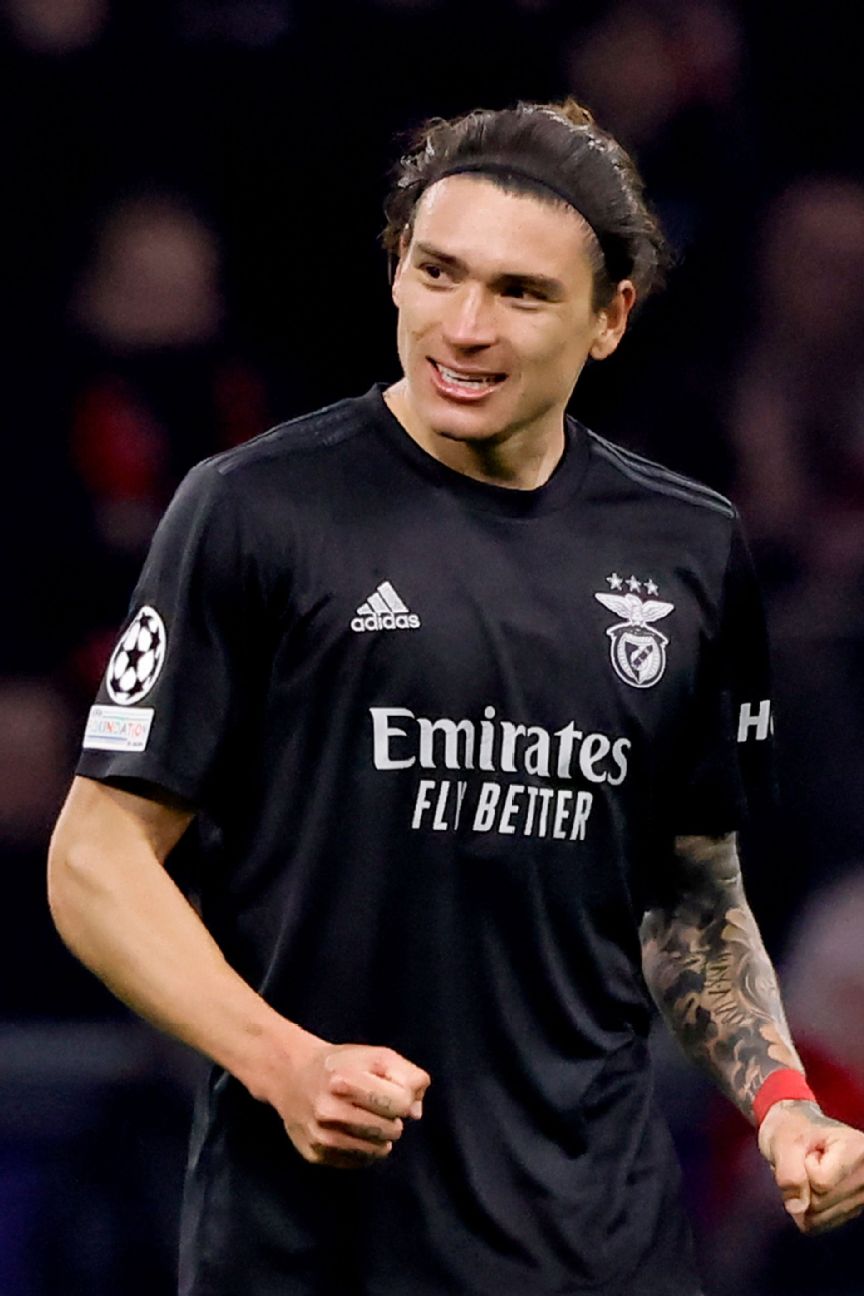
Though right-footed and preferring to operate from a wide starting position on the left, the Uruguay international does display a few No. 9 similarities with Haaland. Both thrive on penetrative running behind the opposing defence, just as both are extremely hard to deal with in physical challenges or when at top speed.
Nunez, who arrived at Benfica in a surprisingly understated €24m transfer from Almeria in the summer of 2020, has gone through an incredible period of development, especially since the turn of the year. With 26 goals in 28 games in the Portuguese league this season, he offers a plethora of options: He can chase a long ball over the top to showcase his speed against defenders (he scored such a goal in the derby against Sporting CP), can make clever runs to get on the end of crosses, hit precise long-range shots, and take up good positions on both defensive and attacking set pieces.
Nunez is undoubtedly at the peak of his game, and the powerful 22-year-old certainly looks like he could handle a step up to one of the top European leagues, with links to Manchester United, Arsenal and Liverpool.
Lautaro Martinez, 24, Inter Milan | Transfer value: €70m
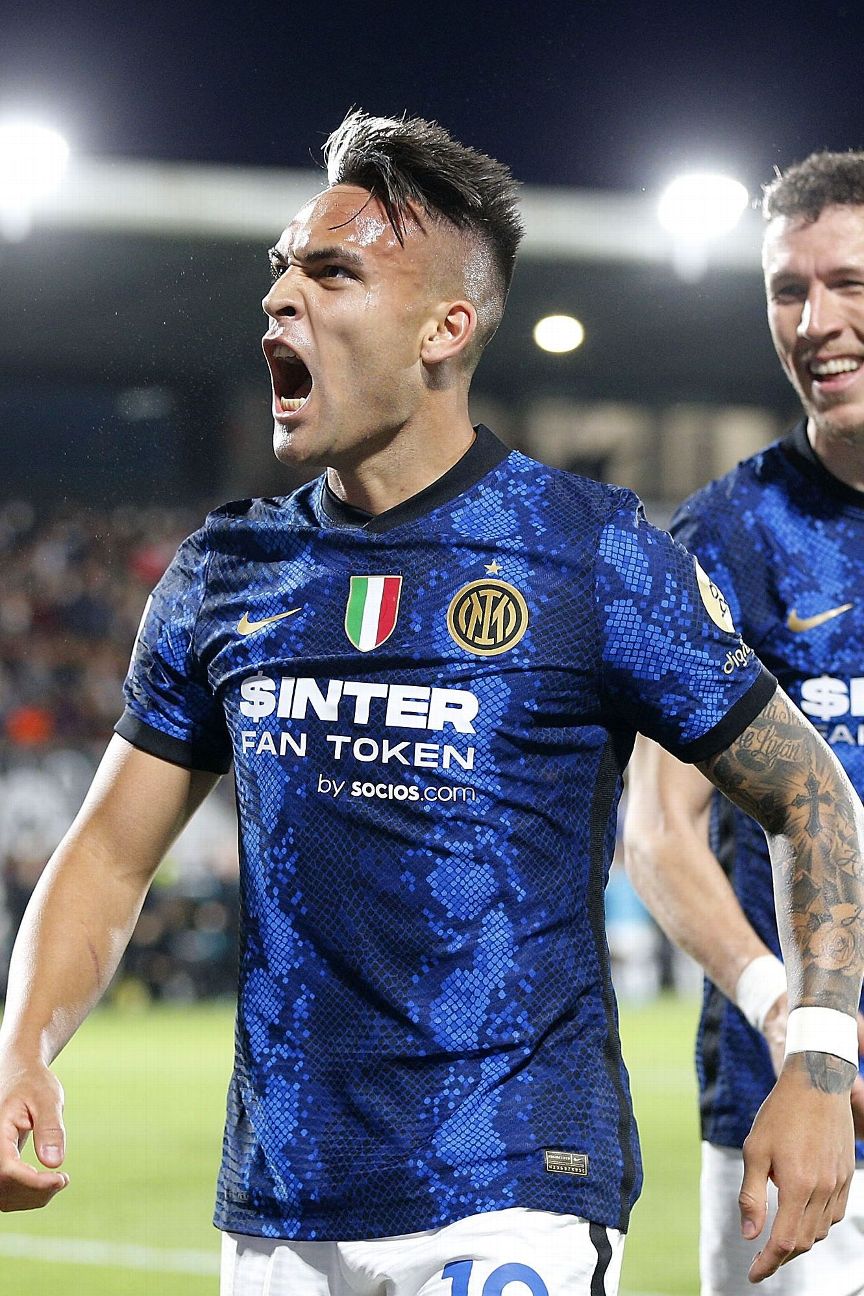
Lautaro was originally a “second striker” or “support striker,” who has gradually made the move to a more central position. His finishing skills, coupled with an ability to protect the ball and create chances in the final third, have contributed to his coaches wanting him to play closer to the goal.
Somewhat similar in style to Argentina compatriots Carlos Tevez and Sergio Aguero, the 24-year-old features an instinctive, “street footballer” playing style, with a quick, functional technique and a low centre of gravity. At 5-foot-9, he’s not in the traditional build of a No. 9 striker, yet he wins a respectable 38% of his aerial challenges.
Though occasionally wasteful in front of goal and with an inclination to score in streaks, Lautaro is getting increasingly prolific (19 Serie A goals this season) and he could be available in the summer transfer window as Inter Milan look to rectify their financial situation.
Tammy Abraham, 24, AS Roma | Transfer value: €45m
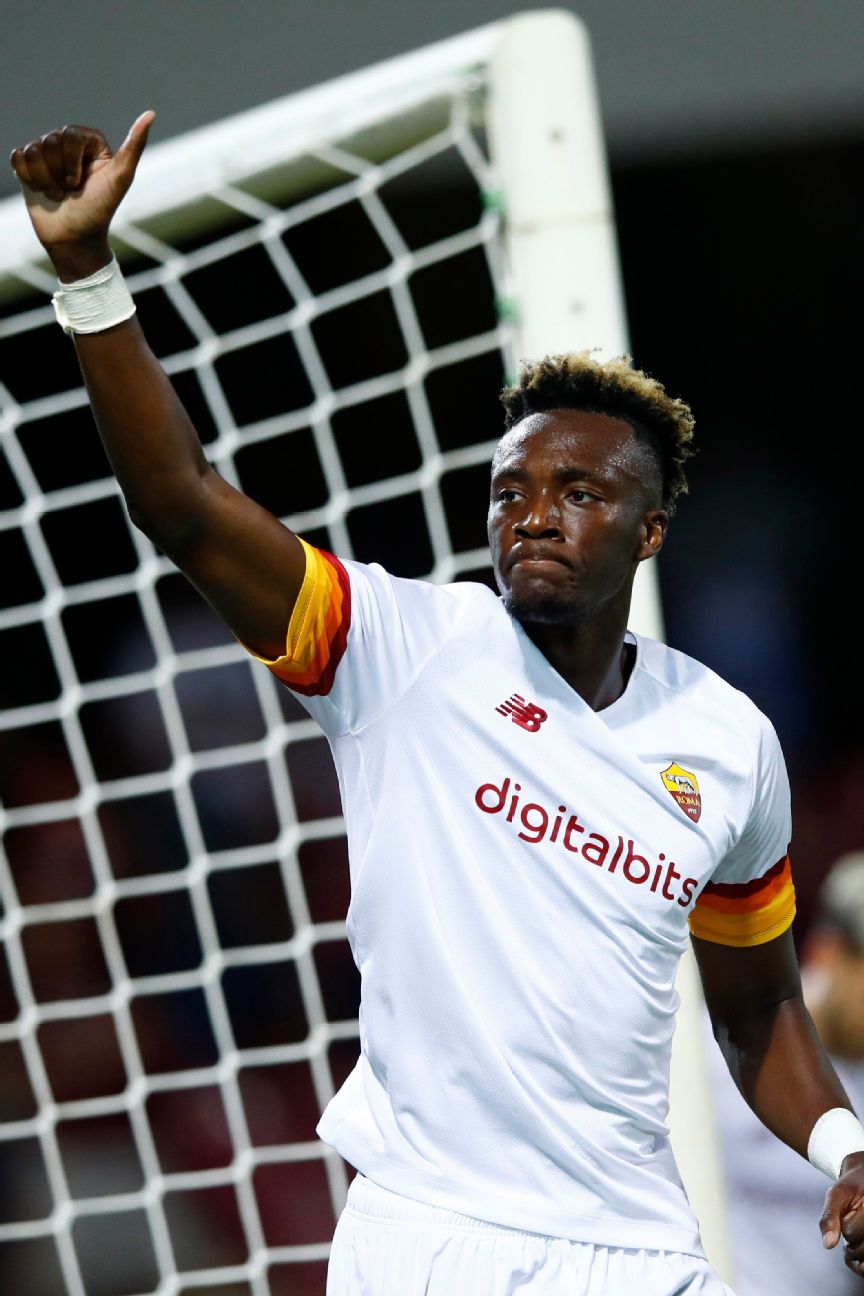
Possibly the candidate who corresponds best with the classic No. 9 tag, the ex-Chelsea striker has a balanced overall game, plus a clear edge in physical skills and aerial ability. Abraham has settled well into Serie A and looks a more assured footballer now — he makes better decisions and appears more focused — than he did a year ago.
When watching the England international, it’s quite clear he’s a player who has been working hard to improve his weaknesses. His tally of 15 league goals is four more than Romelu Lukaku and Timo Werner (the two forwards who stopped him getting enough minutes to stay at Stamford Bridge), and though Roma would surely want to keep him, his performances have sparked interest among several Champions League clubs.
Victor Osimhen, 23, Napoli | Transfer value: €60m
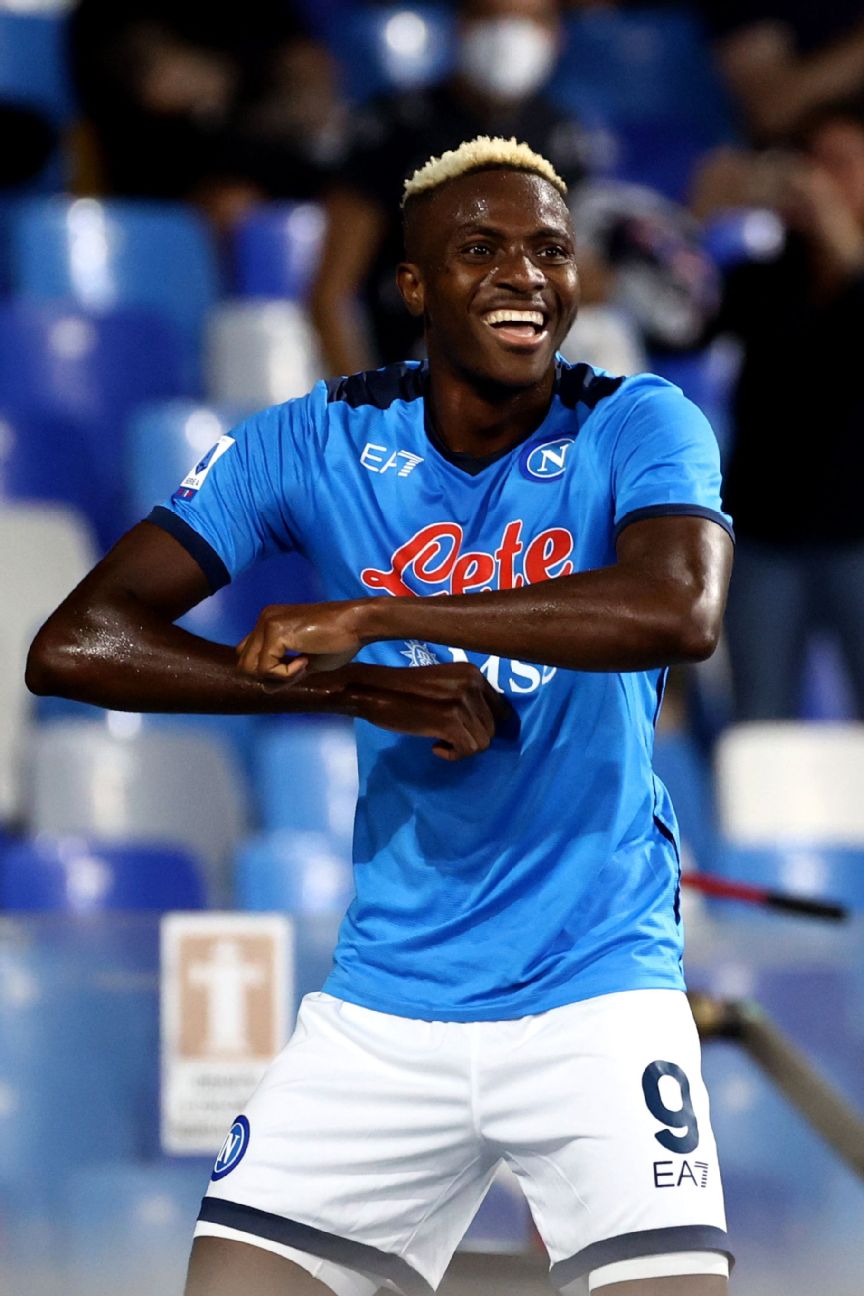
Despite spending a lot of time in the treatment room during his first two years in Italy, Osimhen has 27 goals and nine assists from his 60 games at the club to date. His combination of pace, directness and finishing skills make him a constant threat and give him an incisiveness that’s valued in a true No. 9. The next challenge for the 23-year-old is to sharpen up his hold-up game and to appear less detached from his teammates during phases of build-up play.
The Nigeria international is at his best when the ball is played in behind to allow him to run through on goal, but when there’s little space behind the defence (unless he arrives at the end of a cross) he tends to struggle to impose himself on a game. However, with Napoli paying €70m to sign him from Lille in July 2020, and his contract having three years left, he may not come cheap for any suitors.
Patrik Schick, 26, Bayer Leverkusen | Transfer value: €44m
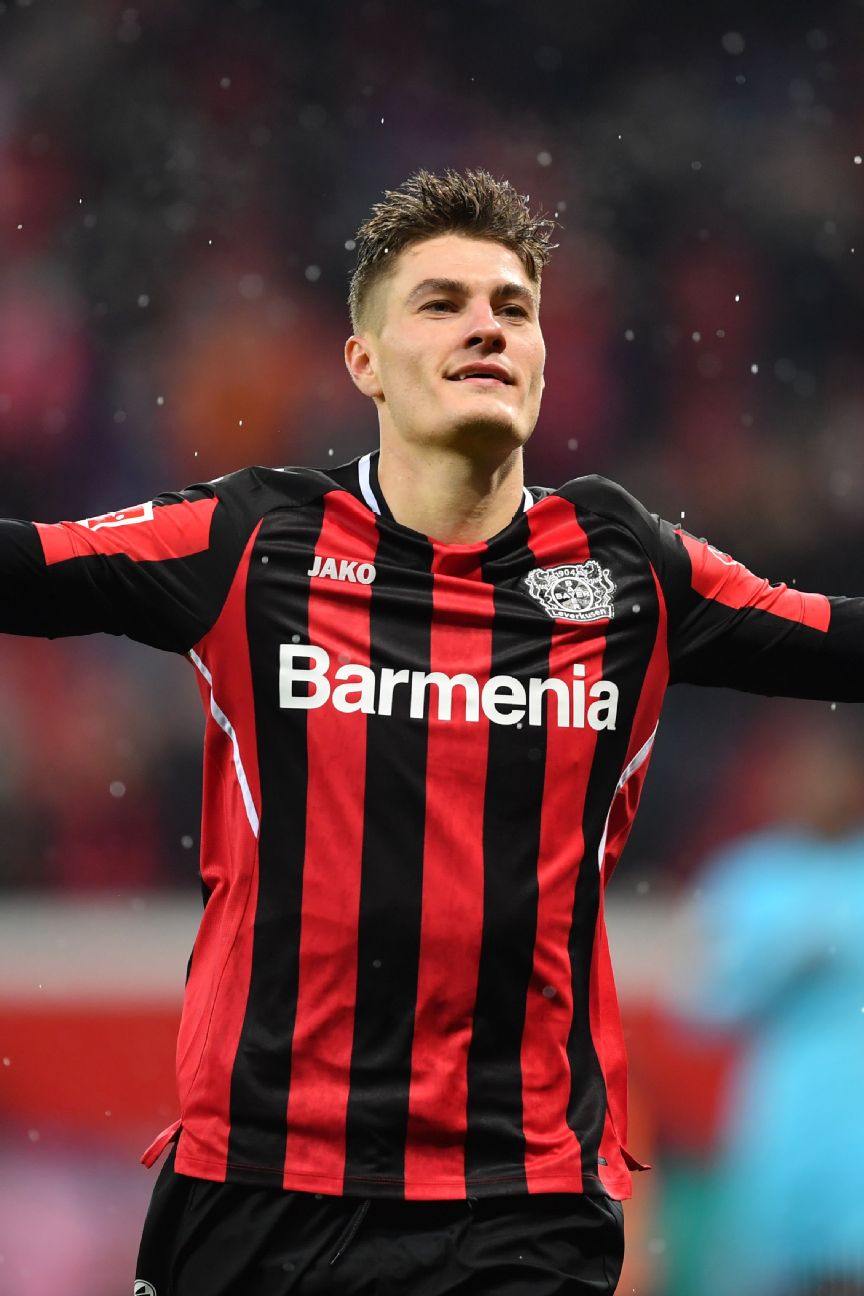
A tremendously talented centre-forward who, after years of trying at clubs such as Sampdoria, Roma and RB Leipzig, is finally showing his full potential. Second behind Lewandowski in the Bundesliga goal-scoring table, Schick — who scored the stunning long-range effort for Czech Republic vs. Scotland that was voted Goal of the Tournament of last summer’s Euro 2020 — has 24 goals in 26 games (his non-penalty expected goals of 0.70 speaks volumes about efficiency; while Haaland’s is 0.67.)
While injuries have haunted the left-footed striker over the past few years, there has always been consent on the scouting scene that if Schick starts scoring consistently, he can be one of the top centre-forwards in the world. It’s evident that the timing of his runs and his finishing (often one-touch, sometimes spectacular half-volleys and volleys) have reached new levels this season. While good at the traditional No. 9 skills — hold-up play, layoffs and flicks — for a man of 6-foot-3 height, he’s also surprisingly effective at making runs behind the defensive line, despite not having mobility as his prime strength.
Credit: Source link